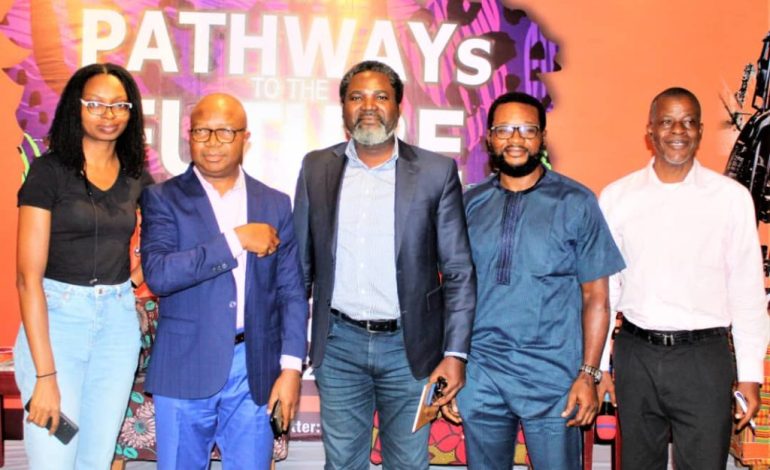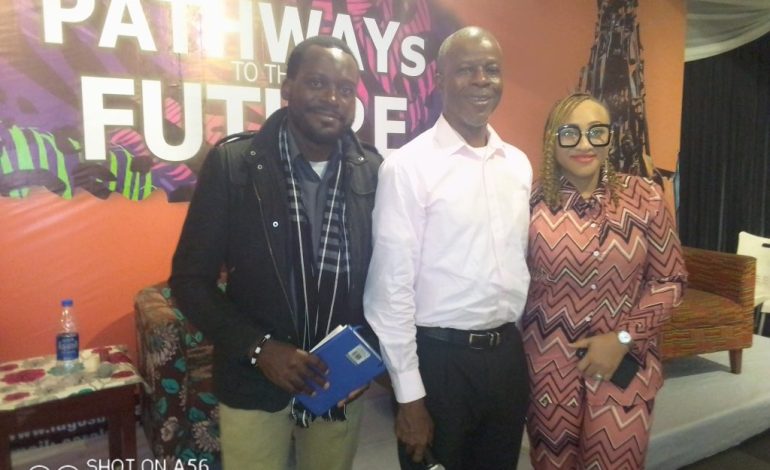Nigerian govt as absentee-father, leaves book, knowledge sectors comatoose

‘Heartbreaking how govt treats books, knowledge sectors’
‘Stakeholders must speak with one voice’
‘We need to set timelines for collaborative actions to energise book trade’

By Anote Ajeluorou
ALL over the world, major national book are owned and organised by government which plays a pivotal role in energising them. Sharjah International Book Fair, organised annually by one of the UAE emirati kingdoms, is one such example of government not just funding, but government-organised global book events. It records over 2.2 million visitors annually. But even privately organised book festivals in most parts of the world, from the federal to state and local councils , governments are deeply involved. This is because the book is the storehouse of modern knowledge, and so any society that fails to get it right with books is a sinking society. From all indices, Nigeria appears to be on that lane to national infamy. For example, the ongoing Lagos Book and Art Festival (LABAF) that ends on Sunday, November 20, 2022 is 24 years running. Each year, Lagos State Government has repeatedly been absent. Not even once has it shown interest or attended if only to put critics to shame.
It was on this bleak note that Mr. Olakunle Kasumu, ChannelsTV Book Club anchor and moderator of the second Publishers’ Forum started the discussion. The Thursday, November 17, 2022 session was tagged ‘Triggering More Effective and Functional Stakeholders’ Collaboration’ at the Lagos Book and Art Festival (LABAF 2022) taking place at Freedom Park, Lagos. It has as broad theme ‘Pathways to the Future.’ This year’s Publishers’ Forum is a collaboration between festival organisers, Committee for Relevant Art (CORA) and Network of Book Clubs and Reading (Culture) Promoters in Nigeria (NBRP).
Three fervent book promoters were on the panel that included Farida Ladipo-Ajayi of The Bookworm Cafe, President of Booksellers Association of Nigeria, Dare Oluwatuyi and Chairman of Association of Nigeria Authors (ANA), Ifeanyi Avajah.
In an earlier session, participants had wondered at the perennial absence of government in any discussion involving books and the knowledge economy. Kasunmu, a regular invitee of Sharjah Book Festival, could not hide his anger and utter amazement at the levity with which the Nigeria government treats books and its allied businesses, including education. A so-called National Arts Festival just ended in Lagos, with big money spent by the federal government, but there was no single mention of books, and you wonder what manner of an arts festival that would hold without books featuring in it. It sums up the disdain government repeatedly shows when it concerns knowledge with books its conveyor belt.
“Stakeholders need to collaborate, no doubt,” Kasumu said lamentably, “but the main problem is government. Sorry, I keep talking about Sharjah Book Festival. They have about 2.2 million people attending every year. They have Sharjah Book Authority that drives everything books and every collaboration, and each year it’s the sheikh of the kingdom that opens the festival. The festival does not open without him being present. But what happens here?”
Oluwatuyi, however, having given up on government after many failed attempts to get its officials to be part of the yearly Nigerian International Book Fair (NIBF), would rather focus his attention on his colleagues in the book value chain and sued for more cooperation, so they could move the sector forward. For Oluwatuyi, his book industry stakeholders should be tired of merely talking every year, saying it was time to take action on some of the laudable propositions they had made over the years and quit lamenting failings in the industry.
“Year in year out we keep on talking, yet no action,” Oluwatuyi said almost in resignation. “We’ve been engaging the publishers, the authors, the printers, and the booksellers, but actions have not been taken. How do we set timelines for action?”
Avajah extended the collaboration module for writers to include publishers, booksellers including Nollywood that should adapt some of their books for screen business, “so that when writers write, they know that their books get to the readers,” he said. Avajah also said collaboration was key to getting stakeholders speak in one voice, so that government that is reluctant and averse to playing its assigned role could listen and act. According to him, “When you speak in unison as a system, then that voice becomes strong” enough to be heard by all, including government.
Ladipo-Ajayi said the lines of business in the book ecosystem has been blurred so much so that everyone is doing each other’s aspect of the business, which she said effectively did make for proper collaboration, adding, “Only one person doing too much, because the system doesn’t allow for specialisation. Absence of structures negate collaboration. We dabble into each other’s roles.”
Oluwatuti corroborated Ladipo-Ajayi on the blurred lines of operations among book stakeholders, saying, “The structures have been distorted. Authors ought to write, take to publishers, who then take to printers to print and then publishers approach booksellers and bookstores to sell books. That was the structure or what we call book chain. But we all do all things by ourselves. Publishers do not only promote books to schools, they also sell; that was not how it was when the structure was intact. A publisher only promotes books to schools, then send his or her books to booksellers and bookstores while schools, after recommending books, ask students and pupils and their parents to buy from booksellers and bookstores. Now, schools even dictate to publishers not to sell to rival schools close to them. That’s how bad it has become.”
Oluwatuyi also blamed government agencies like the federal Universal Basic Education Board (UBEB) and its state counterpart, State Universal Education Board (SUBEB) for supposedly purchasing books for pupils and students, saying such practice has added further distortion to the book chain: “SUBEB and UBEB buying books is wrong. We give room for something (that is) not necessary,” he argued. However, many might counter Oluwatuyi’s argument, since beneficiaries of this practice are members of his industry – publishers and printers who governments engage in supplying books to these two agencies of governments, not forgetting that it also falls within the basic free education policy of government. Those sidelined by this policy, it would seem, are Oluwatuyi’s subsection of the industry – booksellers – who are then cut off from benefiting from the policy, with only publishers benefiting. Printers are also sidelined as most books are printed abroad now on account of Nigeria’s import-based economy where paper and ink all come from outside the country. This leaves little profit margin for publishers if they were to print locally. What this also means is the economy is hurt with the attendant capital flight and loss of jobs as publishers continue to print abroad.
Another unstated but ever real grouse by Oluwatuyi and his colleagues could be that in spite of the billions of naira supposedly spent annually to purchase books for pupils and students across the country, the dismal performances coming from the school system have been staggering since in spite of the policy. Perhaps it was time to take another look at the policy if indeed the end-users are the targets of the policy, otherwise it just might have become another white elephant project that only benefits those in government awarding bulk book purchase contracts to publishers while end-users increasingly become worse off.
Oluwatuyi also expressed book stakeholders’ disgust with government over paliatives supposedly shared to the creative sector that didn’t get to anyone in his sector. This after the book sector was initially ommitted completely from the list that had Nollywood, fashion designers and tourism, but supposedly listed after a protest from them. But till date, Oluwatuyi said not a kobo has got to the sector. While it’s convenient for the federal government to host the World Tourism conference in that just ended in Lagos, Nigerian government has never held a book or education fair in living memory.

With a consistent absentee government as continuing norm rather than the exception, why has it taken stakeholders in the book chain so long to find a common voice to pull government into the loop with whatever means necessary? This was Kasumu’s probing question. Why has government become so deaf to yearnings of those in the sector?
Oluwatuyi was emphatic that he would never approach government again for anything regarding books, saying government is as good as dead to the book sector judging from his recent harrowing experience. Having been tasked to get the Minister of Education Mallam Adamu Adamu to attend last year’s NIBF in Lagos, he’d travelled to Abuja to deliver letters and follow up. He made the Abuja trip twice, but he could not meet any person at director level to discuss his mission. At the last minute, he was offered the CEO of National Library of Nigeria Prof. Veronica Chinwe Anunobi to stand in for the minister, who duly attended the book fair. Well, for most Nigerians this shouldn’t be a surprise. Minister Adamu has since owned up to his serial failures as a minister even as he still remains in office and drawing salaries from Nigerian tax-payers’. In saner climes, Adamu would since have left office in disgrace.
For Avajah, stakeholders would need to bind together and form a consortium to take on government’s officials and their shenanigans, so they are held to account and to perform their assigned roles. Ladipo-Ajayi enjoined stakeholders to keep doing what they were doing, adding, “A lot of people are doing things, setting up private libraries and setting fees that sometimes may not be affordable to majority of people.” Oliuwatuyi has since stopped going to public libraries which are starved of funds to buy books, saying only cobwebs were what welcomed anyone to public libraries. Avajah recently visited a Lagos state public library in Itire, Surulere, where readers have to brave the heat to read as there are no fans or air-conditioners to make their reading experience cool. This is as the public library charges N1,500 per day for you to read even as it can’t provide a fan!
Heartbroken at the sheer negligence of the book sector by government, moderator Kasumu would sum proceedings up thus: “We are individually smart, but collectively below par! We should do better as a people otherwise we will continue to remain where we are – at the bottom.”



